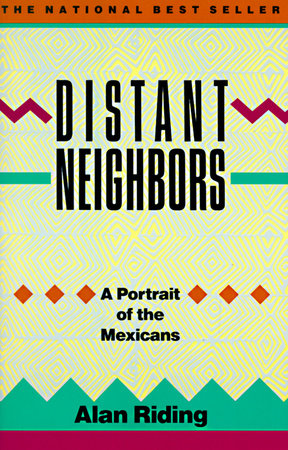
Selena Gomez (center) as Jessi in Emilia Pérez. (PAGE 114 - WHY NOT PRODUCTIONS - PATHÉ FILMS - FRANCE 2 CINÉMA)
Editor’s Note: As with any story about language, Latinidad, and representation, the recent one between actors Eugenio Derbez and Selena Gomez has elicited many strong opinions (including from me). When Félix Sánchez of the National Hispanic Foundation for the Arts sent me his thoughts about it, I enthusiastically said yes to publishing them. Here is Félix’s piece. — Julio
Actor Eugenio Derbez’s criticism of Selena Gomez’s Spanish-language performance in the critically acclaimed film Emilia Pérez, for which Gomez received a Golden Globe nomination for Best Performance by a Female Actor in a Supporting Role in any Motion Picture, has set off an online firestorm of controversy.
In his insightful 1984 book Distant Neighbors, Alan Riding described the massive misunderstanding that permeates the U.S.-Mexico relationship, particularly the adjacency between Mexicans and Mexican Americans.
Kudos to Derbez for apologizing to Gomez. Unfortunately, the damage he caused will not be easily undone without context or unless we turn this incredibly offensive incident into a teachable moment.
First and foremost, Gomez’s novel role was specifically Mexican American. Multigenerational Mexican Americans (if they speak Spanish) have an accent not unlike the accent Mexican actors have in English.
In addition, U.S. Latinos have embraced Mexican, Spanish, and Latin American artists who have crossed over to U.S. television and film productions. The 2022 Oscar for Best Picture went to Coda, a film that organically made the music teacher, who happened to be Latino and was masterfully played by Derbez, the bridge between the deaf family and the hearing daughter, thus central to the storyline.
Similarly, Argentine-American actress Camila Morrone was Emmy-nominated for Outstanding Supporting Actress in a Limited Series for her bilingual portrayal of Camila Alvarez in Amazon Prime’s Daisy Jones & The Six.
Non-Spanish dominant Latinos, meanwhile, turned on English-language captioning to understand Sofía Vergara’s Griselda on Netflix. Increasingly, television series and films are featuring substantive Spanish dialogue and context. Witness the pivotal role of Carlos Diehz’s character in Conclave, Zoe Saldaña’s force-of-nature role in Lioness (Paramount+), and Michael Peña’s casting in Landman, set in the West Texas oil rig world (also on Paramount+).
And let’s not forget the extraordinary linguistic effort made by Eva Longoria, a multi-generational Mexican American, who stars in Apple TV+’s Spanish-language series Tierra de Mujeres (Land of Women).
Plus, Longoria’s two CNN docuseries, Searching for Mexico and soon Searching for Spain, serve as cultural content that connects many Latinos to their forgotten historical heritage. Couple this content with John Leguizamo’s bold PBS anthology series American Historia, and you begin to see the building blocks of a next-gen Latino outlook on ourselves.
What is the point of this discussion? It involves reframing our U.S. brand to include our origin story, which emphasizes the massive land transfer from Mexico to the U.S. after the Mexican-American War of 1846-48. This transfer made the U.S. what it is today.
Mexican Americans and other Latinos are reclaiming our diasporic identity, albeit imperfectly, yet completely recognizable and transformative.
Forward-leaning shows like Max’s Perry Mason, starring Veronica Falcón, normalize her “right to be there” role and, by extension, create a permission structure for Latinos to belong anywhere we want.
The most pronounced visuals and messaging can be seen in Manuel Garcia-Rulfo’s gestalt Netflix series, The Lincoln Lawyer, where his character is surrounded in each episode by inclusive, three-dimensional Latino images. The show harkens back to Jimmy Smits’ lawyerly portrayal of Victor Sifuentes in the groundbreaking network drama L.A. Law, followed later by Smits’ charismatic role as Congressman Matt Santos, the aspirational presidential candidate, in the final season of NBC’s The West Wing.
Selena Gomez deserves more than an apology for taking a risk in crafting this intricately tragic character. And Mexican Americans need to be understood from their lived experience. Gomez deserves our appreciation and support for taking a chance outside her comfort zone to deliver this award-nominated performance. United, we can take greater strides.
The tide is turning, one day at a time, and even with our imperfections, the Mexican-American diaspora(s), as well as all our sister Latino diasporas, are changing the narrative, even if it offends cultural purists.
About the Author
Félix Sánchez is the Chairman and Co-Founder of the National Hispanic Foundation for the Arts, which he launched with Jimmy Smith, Sonia Braga, Esai Morales, and Merel Julia in 1997. Félix is also a U.S. Presidential Nominee to the Board of the Corporation for Public Broadcasting (CPB), awaiting Senate confirmation.
Donation Update
Thanks to a $50 donation from Joe Ruiz (YAY!), we are now at 49% of our year-end $10,000 goal, and we have 53 supporters.
If you enjoy receiving The Latino Newsletter's daily posts for free, without paywalls, reaching 100% of the fundraising target in 2024 will keep us going until February 2025.
What We’re Reading
Miguel Cardona and the Department of Education: Nicole Acevedo of NBC News published her interview with outgoing Secretary of Education Miguel Cardona, who is of Puerto Rican descent.
Rep. Crockett and the “Slave Mentality” of Latinos: In a Vanity Fair interview last Friday, Rep. Jasmine Crockett (D-TX) said the following about Latinos who supported Donald Trump:
“That is my distilled summary of what happens within the Latino community. I’ve not run into that with the Asian community. I’ve not run into that with the African community. I’ve not run into that with the Caribbean community. I’ve only run into it with Hispanics. When they think of ‘illegals,’ they think of, you know, maybe people that came out of the cartels and that kind of, like, the criminal-type book or whatever. It’s insane.”
“It almost reminds me of what people would talk about when they would talk about kind of like ‘slave mentality’ and the hate that some slaves would have for themselves. It’s almost like a slave mentality that they have. It is wild to me when I hear how anti-immigrant they are as immigrants, many of them. I’m talking about people that literally just got here and can barely vote that are having this kind of attitude.”
A lot to unpack there.
The Latino Newsletter welcomes opinion pieces in English and/or Spanish from community voices. You can email our publisher, Julio Ricardo Varela. The views expressed by outside opinion contributors do not necessarily reflect the editorial views of this outlet.



